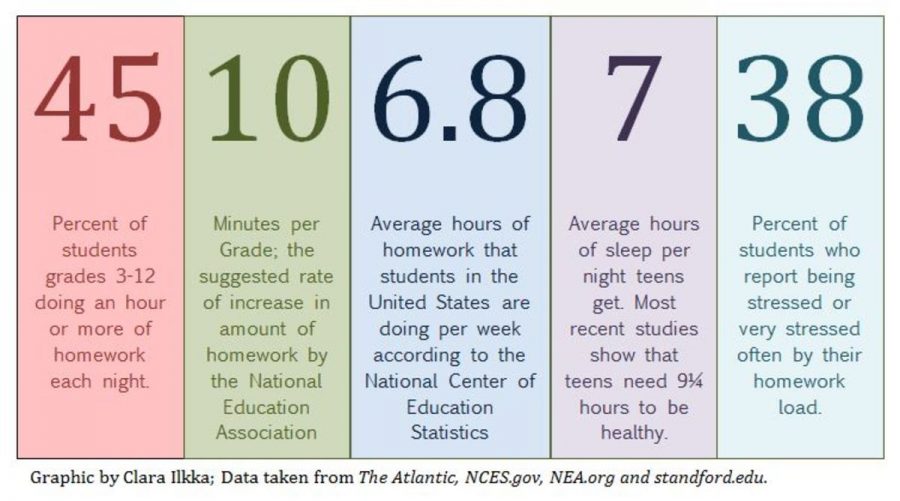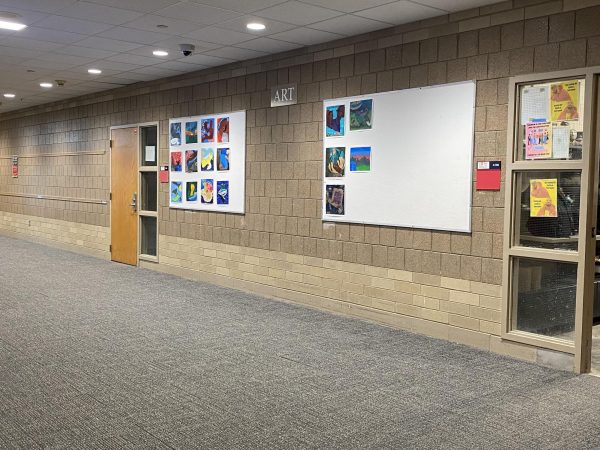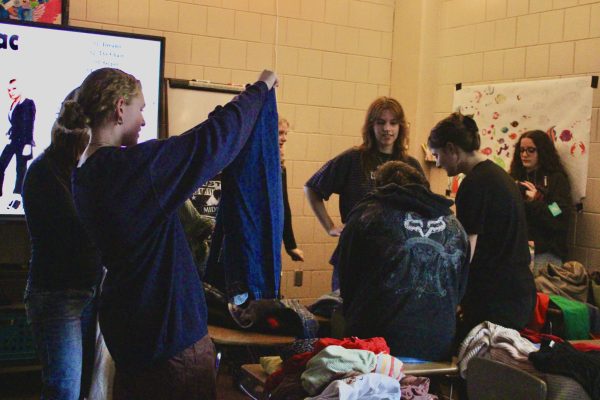Staff Editorial: new studies raise question, how much homework is too much?
Graphic by Clara Ilkka
November 25, 2013
Homework is a common source of stress for high school students. After spending six and a half hours at school, students are typically left with two to four hours of homework. Homework can be helpful, but sometimes it ends up being hurtful as it is a lot of work for one person.
Six different classes each day, most of which are moving at a reasonably fast pace, can become overwhelming, especially when the homework piles up.
Research shows that homework can be mentally and even physically damaging, according to William Crain, Ph.D. His studies demonstrate that homework really is not much help in the long run, and the less homework a student gets, the more he or she will benefit from it.
Less is better because otherwise, students end up only doing the homework to get it done. Nothing is gained in the process and an excessive amount of homework is dreadful.
The amount of time students spend on homework has risen over the past three decades, perhaps to keep up with the difficulty of getting into college, which has also been rising according to The Boston Globe.
High school students should be spending no more than 30 minutes on homework for each subject every night. Perhaps there shouldn’t be a time limit, but the amount of work for each class should vary. People have different skill levels and it could take one person longer to do something than another, so homework should be a set number of problems for each subject.
There are studies that show the only homework that is helpful is review of a subject gone over in class or preparation of new material. Practice is helpful sometimes as well, but not always for every subject. Research by Duke University concluded that homework does not have a positive effect, and can actually be counter productive to student learning.
Some homework that involves practice of material can become repetitive and boring. Some might argue it is only busywork. The practice is not helpful at all if a student did not even understand how to do it in the first place. Sometimes problems are created when students are told how to take notes. A student should be able to take notes how he or she wants to in order to better understand the material.
A student may understand something while in a classroom setting, but after being in five other classes, the familiarity of the material fades away. By the time a student gets home, it could be hard for him or her to remember the material taught in class.
Homework is not as effective as classwork. Being in a classroom setting is helpful because students are surrounded by each other and can help each other better understand the material. The teacher is also there to help during class or reteach something if a larger part of the class does not understand every part of the material.
Homework is mostly unnecessary and harmful to students. Without homework, students would be happier and most likely healthier in terms of stress and sleep. A little homework helps sometimes, but too much is a burden.

















Alex Eitzman • Nov 26, 2013 at 10:54 pm
The sources for this article and research are very good. The reasoning(college admissions) is also very well thought out. The graphic is very informative and adds greatly to the article as well.
Lucy Langmack • Nov 26, 2013 at 12:41 pm
I like how the article has professional doctoral support and is relatable to the average high school student. It has a good flow and tempo which help convince readers of the article’s opinion of the issue ending with a good call to action.